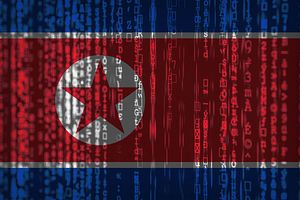The National Intelligence Service (NIS) on Thursday told the National Assembly’s Intelligence Committee that South Korean companies and public institutions had been damaged by cyberattacks from North Korea.
Ha Tae-kyung, a member of the Intelligence Committee and legislator for the main opposition party, said that the NIS has taken measures to control the damage among companies and public institutions. The North’s attempted cyberattacks on the public sector decreased by 4 percent while its cyberattacks on the private sector increased by 13 percent from last year’s figures, Ha said.
The major public institutions affected by North Korean hacking were related to national security. The Korea Atomic Energy Research Institute was exposed to hacking attacks by North Korea for 12 days; the institute first reported the damage on June 1. According to Ha, the NIS said that the “most sensitive information” was not affected, but it did not give a definition of what constituted sensitive information to lawmakers.
The North has in the past engaged in cyberattacks targeting private companies to extort money or gain access to sensitive information. The NIS said it is sharing information with other companies in the pharmaceutical, bio, and defense industries to help them to react to a cyberattack promptly.
Leif-Eric Easley, associate professor of international studies at Ewha Womans University in Seoul, told The Diplomat that the North’s recent cyberattacks aimed to acquire sensitive technology and information and test South Korean vulnerabilities for future attacks.
“Many of North Korea’s cybercrimes are state-backed attempts at making money. But the recent cyber intrusions against South Korea do not appear so financially motivated or intended to do immediate damage,” Easley said.
As state-backed cyberattacks increased in the first half of this year, experts say that the South’s military should increase its cyber intelligence in order to counter the North’s growing capacity for cyber threats.
The NIS also reported to lawmakers in the Intelligence Committee on internal developments in the North. According to the briefing, some of North Korea’s key military officials, including Ri Byung Chul and Kim Jong Gwan, appear to have been demoted. The ostensible reason for their demotion is that Kim needed some officials to be held accountable for the “grave situation” he mentioned at a recent party meeting. Based on Kim’s remarks, North Korea is struggling with COVID-19 quarantine measures and food shortages caused by a powerful typhoon last year.
Kim Yo Jong, sister of the North Korean leader, seems to be in charge of diplomacy and security while remaining actively involved in internal affairs. She appeared at the podium for the first time at the recent meeting to discuss quarantine protocols and domestic issues. Choe Son Hui, a veteran North Korean foreign affairs official who previously led working-level negotiations with the U.S., is also believed to be continuing her role, the NIS told lawmakers.
North Korea recently declared a long-term quarantine war in response to highly contagious new variants of the coronavirus. Authorities have expanded guard posts and installed border barriers to block any incoming traffic in goods or people, the NIS told lawmakers in the Intelligence Committee.
The NIS added that it believes the North has not acquired any vaccines to guard against COVID-19 – not even for Kim Jong Un himself.
Thanks to the North’s excessive quarantine measures, in place since early last year, the NIS reported that North Korea is currently seeing soaring rice prices. North Korea’s trade volume was $860 million last year – one-quarter of the volume in 2019 and one-eighth of the figure in 2016, before devastating sanctions were put in place following a spate of North Korean nuclear tests.
Trade between North Korea and China between January and May this year was reported at $51.61 million, down 84 percent from the same period last year. During the same period, the price of condiments and sugar soared five-fold while the price of medicine increased tenfold. To tackle the devastated economy in the country, Kim has ordered his military officials to distribute military provisions to the people, but there are no signs as of yet that his order is being carried out.
As North Koreans face the country’s worst economic crisis since the famine in the 1990s, known as the “Arduous March,” North Korea is tightening internal controls, according to the NIS reports to lawmakers.

































